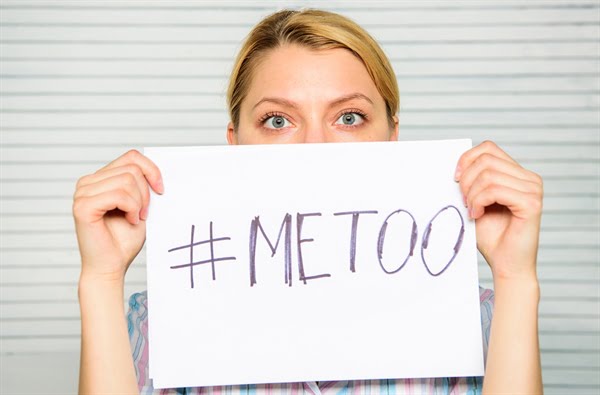There’s no doubt that the #MeToo movement changed the way society views certain powerful people, as well as domestic violence, abuse, and sexual harassment claims. There’s also no disputing that much of this change has been positive, but it has brought to light some concerns about how this change will affect victims of false or flimsy accusations.
According to an NPR-Ipsos poll gauging the national response to this movement, which has led to the disgrace of numerous powerful public figures in nearly every industry, around 40 percent of society feel that the #MeToo movement has gone “too far.”
Much of this is because we don’t know exactly how often false accusations are made. It’s clear that they happen, but since real accusations don’t always bring justice, and false accusations aren’t often sniffed out, it’s unclear how often they happen. The same poll found that a great number of people surveyed said they believe false accusations are common.
In this article, we’ll discuss some of the stats and facts about domestic violence and abuse claims, look at them through the eyes of the #MeToo movement, and talk about what to do if you find yourself on the wrong end of a domestic violence, domestic abuse, or sexual harassment allegation.
The #MeToo Movement
The first step to understanding how our world has changed because of this movement is to understand what, exactly, #MeToo represents.
The #MeToo movement began in large part through social media using the #MeToo hashtag. It was meant to empower women who had been victims of sexual violence, workplace harassment, and domestic abuse.
“Me Too” has been used by victims of abuse and harassment since as early as 2006, but it took over a decade for the movement to take its form as we know it. Accusations of wrongdoing have increased greatly, contributing to the public shaming and negative consequences for well-known figures like actor Kevin Spacey, musician Robert ‘R’ Kelly, comedian Louis C.K., and media mogul Harvey Weinstein.
Domestic Violence Facts
Whether or not the movement has gone too far, it’s clear that domestic abuse, sexual violence, and the other issues at the heart of #MeToo are important and common issues. Here are some stats on abuse by the National Coalition Against Domestic Violence (NCADV):
- Nearly 20 people per minute are abused by a partner
- About 25% of men and 33% of women have been a victim of physical violence from a spouse or other intimate partner
- 1 in 5 women have been raped in their lifetime and just under half of these cases involve an intimate partner
The #MeToo Backlash
Since the peak of the #MeToo movement in mid-2018, opinions are divided on the legitimacy of the movement.
Side Effects of the #MeToo Movement
A positive that came from the movement is women feel more support about coming forward with their own experiences of abuse. As the NCADV statistics above show, whether #MeToo went too far, domestic violence and abuse is a serious issue and society should give it the attention it deserves.
Another positive from #MeToo is that well-known figures have been exposed as abusers and removed from their positions of power. A New York Times study found that out of 201 positions (previously held by men) that opened up from notable #MeToo cases, 124 of them have been filled, 54 by women.
Many people also believe that there are negatives to the #MeToo movement. More people will be accused of domestic violence and sexual abuse, but is this necessarily a good thing? If more abusers are revealed, then it would seem so, BUT, what happens if some innocent people are wrongly accused of serious crimes?
At any rate, it’s important to understand your options if you’re accused of domestic violence. The potential of getting that charge dropped without having to go to trial is the best case scenario.
Domestic Violence Accusations
According to a NYT Survey of the National Domestic Violence Hotline, the #MeToo movement has spurred a 30 percent increase in the total number of domestic violence accusations.
Since you’re now more likely to be accused of DV now than before #MeToo, here’s a breakdown of the charges associated with domestic violence in South Carolina and how to make sure your interests are protected in the face of a false allegation.
The Political Landscape Going Forward
Women across the country are more empowered and supported by their peers when sharing their story than ever, but society can’t let the rights of the accused be swept under the rug. In domestic violence cases the court must respect the rights of an alleged offender versus the rights of an alleged victim.
In the “#MeToo era,” the rights of the falsely accused must be carefully considered, because the stats resulting from the movement suggest that these cases may be reported more frequently.
Here are 3 things to consider when you’re falsely accused of Domestic Violence in South Carolina:
- Make sure you have access to a criminal defense attorney with experience in Domestic Violence cases. They’ll know exactly what to do to best protect your interests in the pending case.
- Make sure you don’t contact the alleged victim. Anything you say or do that can be seen as threatening in the slightest may compromise the possibility of disposing of your case. Do not respond to the alleged victim even if he/she initiates contact with you unless and until you have hired an attorney to advise you.
- Make sure you keep a record of any time the alleged victim (or someone on behalf of the victim) contacts you after the arrest.
The Future of #MeToo
What will be the lasting effects of the #MeToo movement? Will false accusations of domestic violence continue to be more frequent?
No matter what happens, you have options when you’re accused of domestic violence or a similar offense. Contact the Law Office of Susan Williams, and get the representation you deserve.



